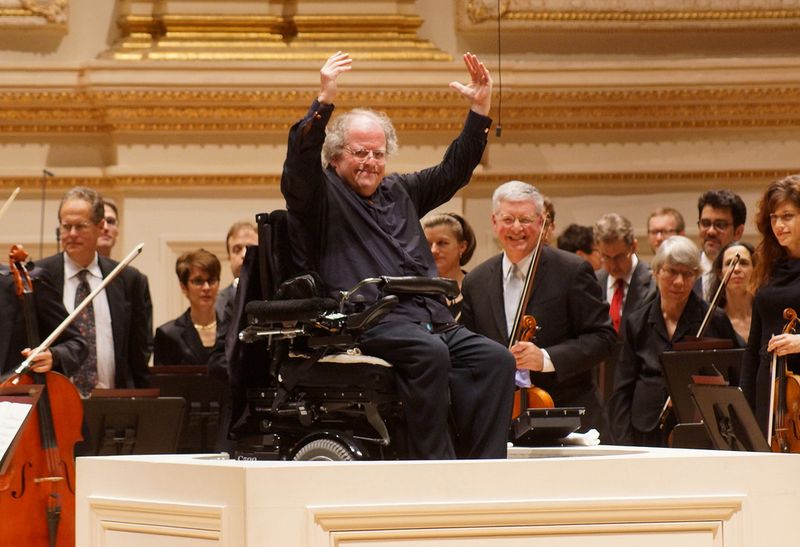The focus shifts to James Levine’s beat
mainThe New York Times has published an Associated Press report by an anonymous journalist, zoning in on the physical inhibitions that affected James Levine’s conducting of Simon Boccanegra on Friday night.
Levine had clear downbeats Friday during solo portions, duets and trio but seemingly extraneous beats appears when the chorus was on stage… it was difficult to discern cues.
As of Sunday morning, the Times has yet to publish its own review. The AP report reads like a judge’s notes at a conducting competition.
There had been rumours all day Friday that Levine would not conduct the opening night, although musicians in the orchestra told us he had appeared fine at the general rehearsal. Levine conducts from a wheelchair and suffers from distracting arm tremors.
Peter Gelb had let it be known two months ago that he was prepared to ask Levine to step down, but was dissuaded after receiving medical reassurances from the conductor’s physician, details of which were promptly shared with the New York Times.
There appears to be board pressure to bring Levine’s 45-year term as Met music director to a rapid conclusion.






Comments